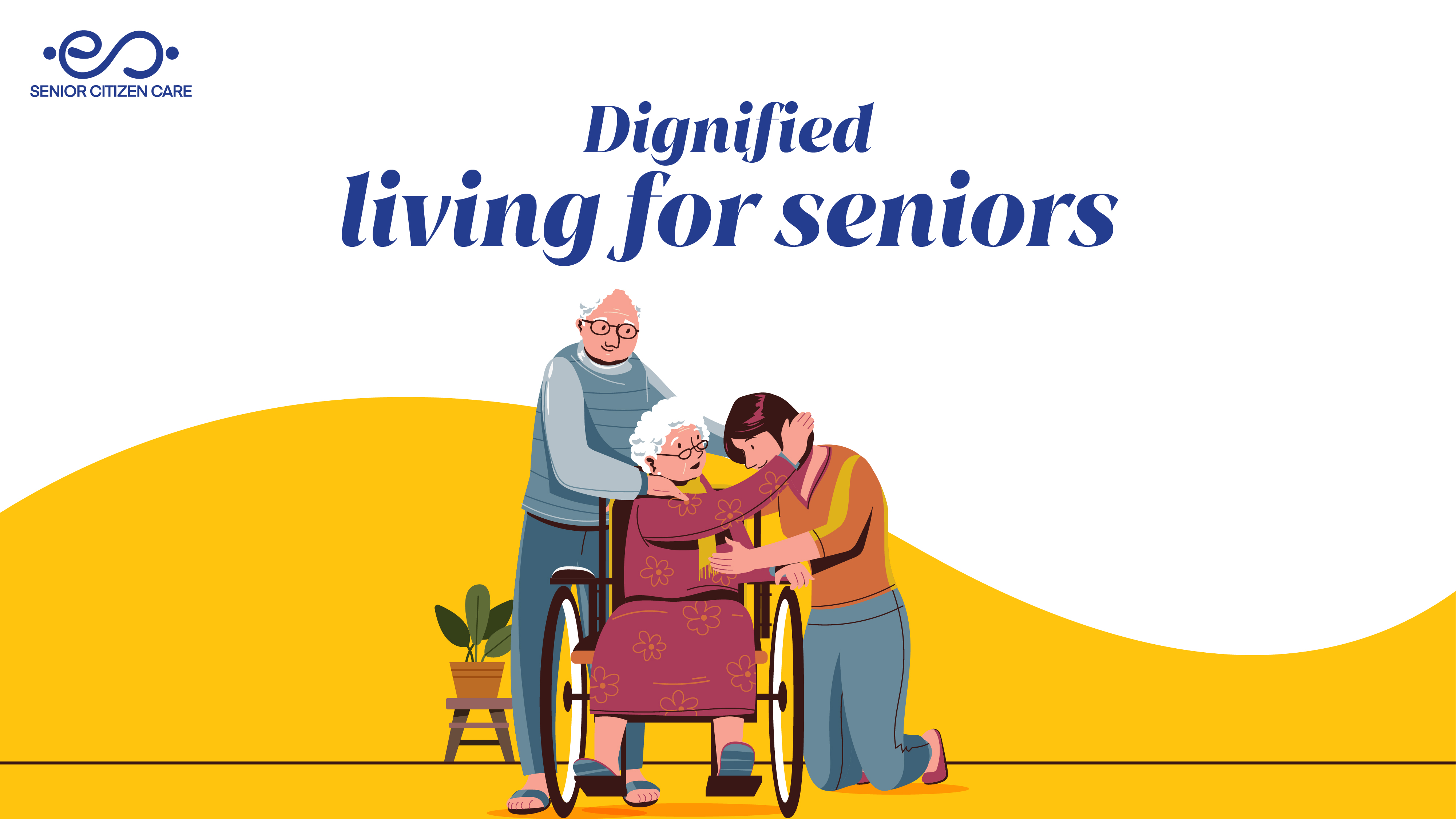Beyond Basic Needs: Defining Dignified Living for Seniors in India
As India’s senior population grows rapidly, the importance of dignified living for
elderly people in India has become a pressing social issue. While basic needs for
seniors such as food, shelter, and healthcare remain fundamental, true dignified living
for senior citizens encompasses much more. It involves respect for elders, autonomy,
social engagement for seniors, and emotional well-being—all critical aspects of holistic
elder care in India that recognize the lifelong contributions and inherent worth of
older adults.
What Does “Dignified Living” Mean for Seniors in India?
In the Indian cultural context, respect for senior citizens is deeply ingrained, viewing
elders as custodians of wisdom and tradition. However, dignified living for elderly
people in India extends beyond reverence and material provision. It means enabling
seniors to maintain autonomy and independence, boost their self-esteem, and foster
meaningful social connections.
The Supreme Court of India affirms the right to life with dignity for seniors under
Article 21 of the Constitution, underscoring that elder rights in India include not just
survival but thriving in an environment that values their abilities and potential. This
legal backing highlights the significance of senior citizen dignity as a cornerstone of
social justice.
Respect and Autonomy: Cornerstones of Senior Citizen Dignity
In Indian families and communities, respect often translates to honouring elders, but
genuine dignity involves listening to senior citizens’ concerns and empowering them with
control over decisions affecting their health, living arrangements, and daily routines.
Recently, President Droupadi Murmu highlighted seniors as vital links to the past and
guides for the future, urging society to cherish their companionship. This reinforces
the need to promote independent living for seniors rather than confining them to passive
roles.
Social Engagement: Combating Senior Isolation and Enhancing Well-being
Social engagement for senior citizens is crucial in improving their mental health and
overall quality of life. Research shows that active social participation and maintaining
intergenerational family bonds significantly increase life satisfaction among older
adults in India.
As traditional joint families evolve, fostering wider social networks for seniors
becomes essential to reduce social isolation and loneliness, conditions affecting nearly
35% of India’s elderly population and linked to depression in 18% of seniors.
Organizations like Senior Citizen Care India provide holistic elder care services,
combining medical support with social and emotional care to help seniors stay connected
and engaged within their communities.
Emotional Well-being: Addressing Mental Health Needs of Senior Citizens
Emotional well-being in seniors is often overlooked but is vital for dignified living.
Seniors face challenges such as depression, anxiety, and loneliness, often worsened by
financial insecurity and health issues.
Support systems including counselling, community programs, and government initiatives
like the Elderline Helpline (14567) provide crucial emotional assistance and
intervention for seniors experiencing neglect or abuse, reflecting India's growing
commitment to protecting senior citizens’ mental health and dignity.
Holistic Elder Care in India: Beyond Basic Medical Needs
Organizations such as Senior Citizen Care exemplify a comprehensive approach by offering
post-operative home care services that respect seniors' preferences and promote their
independence.
Government schemes like the Atal Vayo Abhyuday Yojana (AVYAY) and Rashtriya Vayoshri
Yojana (RVY) further support dignified living by providing assistive devices, caregiver
training, and other resources aimed at enhancing the quality of life for senior citizens
in India.
Challenges and The Way Forward for Senior Citizen Welfare in India
Despite deep-rooted cultural respect, many Indian seniors face challenges including
ageism, marginalization, and insufficient support. Additionally, climate change and
natural disasters disproportionately affect older adults, highlighting the urgency for
inclusive policies prioritizing senior safety and dignity.
Building robust support systems for elderly care in India, promoting social inclusion of seniors, and ensuring access to healthcare and resources are critical steps toward achieving dignified living for all elderly citizens.
Conclusion
Dignified living for senior citizens in India transcends meeting just basic needs. It involves respecting their autonomy, encouraging social participation, supporting emotional health, and delivering holistic elder care that empowers seniors to lead independent, meaningful lives.
As India progresses, embracing this comprehensive vision of dignity will honour the invaluable contributions of its elderly population and enrich society as a whole.
